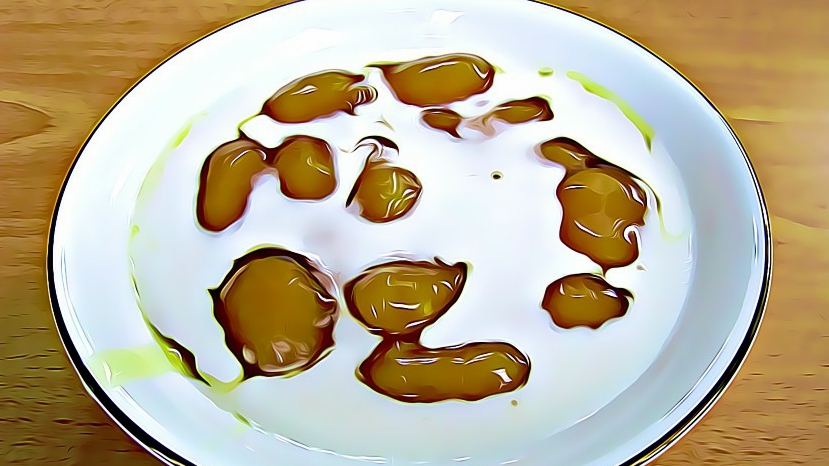On this occasion I want to share information about "Taste the Sweetness of Ramadan: 10 Indulgent Desserts in the Takjil Tradition" and please listen to the article, During the holy month of Ramadan, Muslims all around the world fast from dawn until sunset. Fasting is an act of worship that aims to purify the soul, increase one's faith, and develop self-control. It is also a time for spiritual reflection and charity. When it comes to breaking the fast, Muslims traditionally start with a few dates and a glass of water, known as "iftar." However, there are also a variety of traditional snacks and drinks that are served during iftar time. In this article, we will explore ten popular takjil foods that are enjoyed during Ramadan.
1. Kolak
Kolak is a traditional Indonesian dessert made of bananas, sweet potatoes, and cassava boiled in coconut milk and palm sugar. It is often served warm and is very popular during Ramadan. Kolak is a delicious and satisfying treat that provides the body with the necessary carbohydrates and energy to help it recover from the day of fasting.
2. Dates
Dates are an essential part of iftar in many Muslim countries. They are a great source of natural sugar, fiber, and essential minerals such as potassium, magnesium, and iron. Eating dates at the beginning of iftar helps to stabilize blood sugar levels and provide the body with much-needed energy after a long day of fasting.
3. Samosas
Samosas are a popular snack in many countries, including India, Pakistan, and Bangladesh. They are made of a crispy pastry shell filled with spiced potatoes, peas, and sometimes meat. Samosas are usually fried and served hot, making them a perfect snack for iftar time.
4. Rooh Afza
Rooh Afza is a popular drink in South Asia and the Middle East. It is a sweet and refreshing rose-flavored syrup that is mixed with water, milk, or soda. Rooh Afza is a great thirst-quencher and helps to rehydrate the body after a day of fasting.
5. Jalebi
Jalebi is a sweet and sticky dessert that is popular in South Asia and the Middle East. It is made of a wheat flour batter that is deep-fried and then soaked in a sugar syrup. Jalebi is often served hot and is a favorite among children and adults alike.
6. Pakoras
Pakoras are a type of fritter that is popular in South Asian cuisine. They are made of a batter of chickpea flour and spices, which is then mixed with vegetables such as onions, potatoes, and spinach, or sometimes with chicken or fish. Pakoras are usually deep-fried and are served hot with chutney or ketchup.
7. Aseer
Aseer is a traditional Arabic drink that is made of blended fruits such as mangoes, bananas, or apricots. It is a sweet and refreshing drink that helps to rehydrate the body after a long day of fasting. Aseer is also a great source of vitamins and minerals.
8. Baklava
Baklava is a sweet pastry that is popular in the Middle East, Balkans, and North Africa. It is made of layers of phyllo pastry filled with chopped nuts and sweetened with syrup or honey. Baklava is a rich and indulgent dessert that is usually served during special occasions such as Ramadan.
9. Fattoush
Fattoush is a popular salad in Middle Eastern cuisine. It is made of mixed greens, tomatoes, cucumber, radish, and other vegetables, dressed with a sumac and olive oil vinaigrette. Fattoush is a light and refreshing salad that is perfect for breaking the fast.
10. Harira
Harira is a traditional Moroccan soup that is usually served during Ramadan. It is made of lamb, tomatoes, lentils, chickpeas, and a variety of spices such as ginger, cinnamon, and saffron. Harira is a hearty and filling soup that provides the body with the necessary nutrients and energy after a long day of fasting.
Conclusion
Ramadan is a time of spiritual reflection, self-discipline, and charity. It is also a time for family gatherings and delicious traditional foods. The ten takjil foods discussed in this article are just a small selection of the many snacks and drinks that are enjoyed during Ramadan. Each of these foods has its unique flavors and nutritional benefits, making them an essential part of iftar around the world. Whether you are breaking the fast with dates and water or indulging in a rich dessert like baklava, Ramadan is a time to appreciate the blessings of food, family, and faith.

